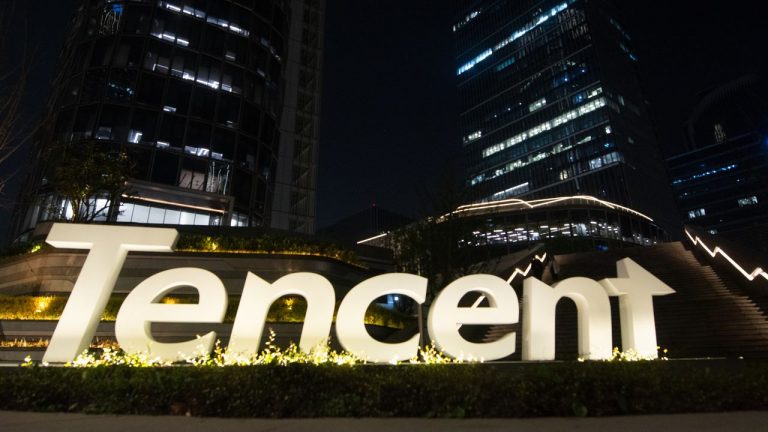(Image credit: Future)
This week I’ve been: visiting my home country of Wales in the metaverse. Oh, with all this AI stuff you forgot about the metaverse, huh?
How did we get ourselves into this mess? A handful of companies claim to oversee a service contributed to by billions of people across the globe. We’ve become so reliant on Google to point us in the right direction that the company is now able to wield a sense of ownership over the content it’s supposed to be signposting. A handful of executives at Google shouldn’t have the power to change the internet, yet they do. They are. And there’s seemingly little we can do to stop them.
Google unveiled many new features coming to Google Search at Google I/O this week, the most notable being AI Overviews. These are designed to answer user’s queries quicker: You type or speak a query into Google search, Google finds an answer, and generates a response. Right there on the page.
“Google will do the Googling for you,” says Liz Reid, Google’s head of Search.
Google’s AI model, Gemini, is the key. It’s banking on using the world’s most elaborate and extensive library of information to provide these answers to its users: Us.
Google acts as a gatekeeper of the internet not only because it provides us with directions on where to go to retrieve information, but it also serves a high number of advertisements. The money from which goes into the pockets of publishers, which, in turn, ends up paying for more content. A rosy look at the fraught and varied business of publishing, I’ll admit, but that’s generally how this works. Sprinkle on some cash flow from affiliate marketing and you have the earnings report of plenty of non-ecommerce websites.
So, what happens when the publisher receives fewer page views on its content? The stakes grow higher, the money to invest lowers, the ads grow worse, and the content becomes more desperate to attract visitors. The ‘enshitification’ of the internet, ultimately, is a monetary issue.
And Google gets a say in all of it. It sits at the centre of the internet, whether you use its services often or not. That’s become a problem in various ways over the years, as the company looks to find new ways to serve information and make money through its index of the internet, Search.
(Image credit: Google)
First ads. Then, serving info ripped straight out of websites right on the search page. It’s this behaviour that saw Google get in trouble with multiple countries and even the EU. The European bloc’s legislation, adopted by member states, had hoped to curtail Google’s nabbing of content without a fair return to publishers for their work. Google responded by removing or threatening to remove its services from some countries altogether. Google News was only put back online in Spain in 2022.
With the advent of Google’s AI-powered search, we might be about to find out what happens when Google diminishes a publisher’s ability to secure suitable revenue. And the results are unlikely to be pretty.
Google says of the change: “As we expand this experience, we’ll continue to focus on sending valuable traffic to publishers and creators.” That one sentence, in a sea of AI news, with no further clarification on how it intends to do that beyond a handful of links to further reading in the result. Reid suggested to press prior to I/O that it expects there to be a growth in traffic spurned by users wanting to dig deeper on topics in which AI has provided an answer, though whether that occurs remains to be seen.
Google suggests it will begin rolling out AI Overviews only where it sees the most benefit from it being used. Though there’s nothing explicitly preventing a gradual expansion into the more of the traditional search engine.
Going off Google’s previous form and refusals to pay back publishers, it’s easy to see why many are worried. The New York Times has published an article titled “Can Google Give A.I. Answers Without Breaking the Web?” The NYT is currently engaged in a lawsuit against OpenAI over the use of its articles to train chatbots.
Publishers are right to be spooked about Google’s plans to incorporate AI into its search results, @kevinroose writes. “The grand bargain on which Google’s relationship with the open web rests — you give us articles, we give you traffic — could fall apart.”https://t.co/Lhgx1dt4lLMay 14, 2024
Similarly, Google’s CEO has been questioned on whether the company is interested in OpenAI’s use of YouTube videos to train its competing models. I’d be surprised if Google wants to fight that battle, considering its own positioning in AI.
The issue ultimately stems from a larger one in regards to AI: who gets to scrape data freely for use in training and operating artificial intelligence systems? Copyright owners for videos, images and text have all raised the alarm about mass data collection for training of AI systems. Though we’re now talking about the collection, processing and reusing of information in real-time. In UK law, there’s no protection for copyright infringement for lifting stories—taking facts published by others—providing they’re not copied like-for-like outside of quotations. That means there’s no obvious remedy for Google’s latest features.
A publisher may use tags to disable many of Google’s rich results features. This would also seemingly disqualify the content from being used by AI Overviews. However, AI Overviews takes up a portion of the search results page and thus pushes down any naturally occurring content, which has already been gradually demoted to lesser spots over the years. Google could tweak the size to make it more amenable, however, and may already have done so during earlier development. This feature isn’t entirely new.
(Image credit: Google)
Though Google should be challenged for what it’s doing. Not the least bit because it seemingly flies in the face of Google’s own recommendations for how to make good content. As the company with the keys to the internet, publishers have long been stuck listening to Google’s advice on how to get seen on its platform. It recommends creators follow four guiding principles: E-E-A-T.
E for experience, E for expertise, A for authoritativeness, T for trustworthiness.
How long can these be achieved with fewer readers, fewer views, less money and an AI leaning over and copying everyone’s answers for Google’s own gain? It might work, for a while, then the money seeps away and the content is inevitably worse off. At what point does the diminishing of original content lead to a dreadful user experience with Google’s Search AI spitting out incorrect responses? Some would argue it’s already pretty poor and doing that today.
it’s very impressive how the obnoxious Google AI thing at the top of all search results now is unconditionally wrong at interpreting what the question was while also delivering new, entirely wrong answers to the question it made upMay 15, 2024
Not to mention the risk of misinformation from a third-party (Google) coming in and rejigging the words to erode any trustworthiness earned by the individual publisher.
Oh my god. Out of the 19 answers that google’s AI search provided, 17 of them are just blatantly incorrect. This is worse than useless. pic.twitter.com/O6fHMPPhTwMay 15, 2024
Why should Google gain from the hard-work of others for a system that is becoming more and more stacked against the actual content creators? I’d love to know.
Everyone with a stake in the internet deserves a sea change of their own. A move away from mega-corporations claiming to run things and back to communities of people willing to share their thoughts, and space, with others. The internet wasn’t created by Google, nor was it made good by Google. More than ever before, it feels like Google is only getting in the way.












